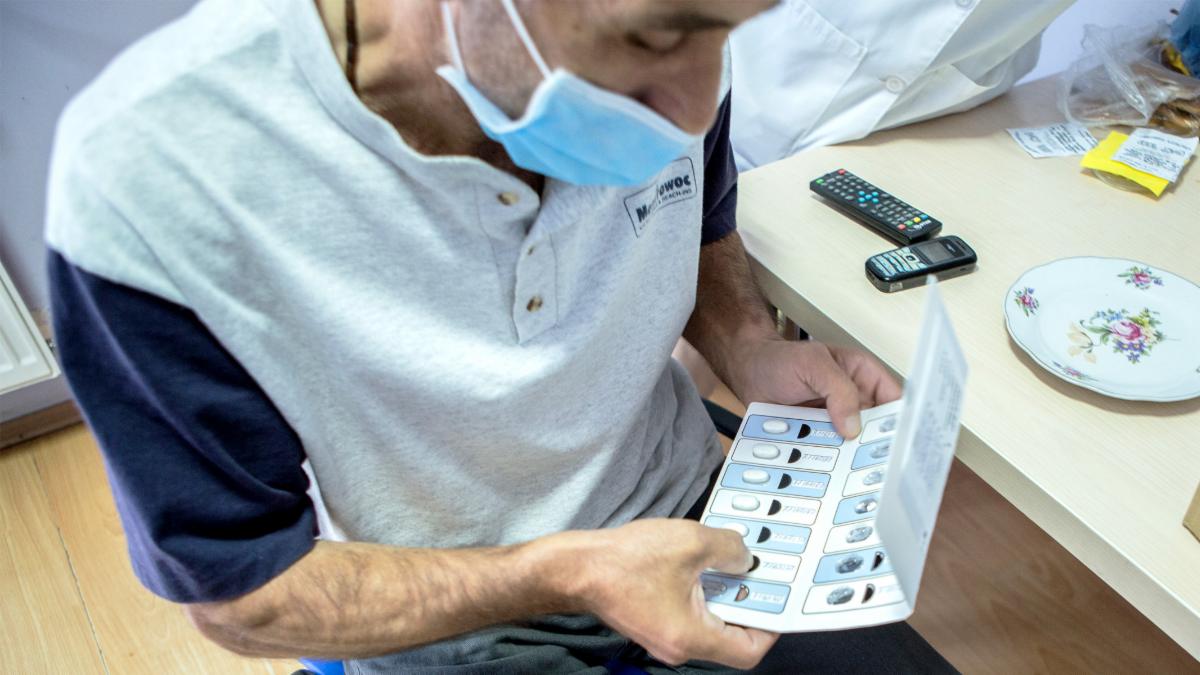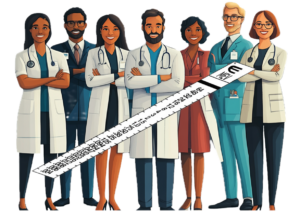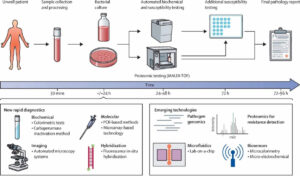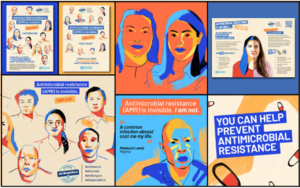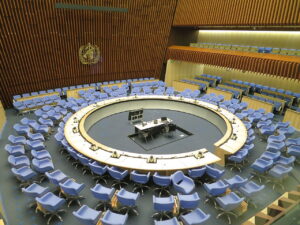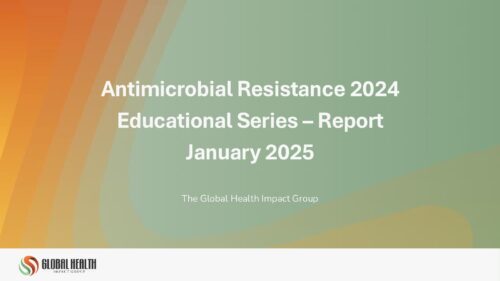Diagnostics and the microbiology laboratory play a critical role in the fight against AMR – to guide patient management, provide data for surveillance to better understand resistance trends, and support research of new antimicrobials and vaccines.
The AMR Global Health Academy is a virtual community where healthcare professionals can access free, open access, online quality educational materials and informative resources for professional development. The academy has been established as an educational initiative for the advancement of the global AMR response and provides global health professionals and AMR stewards in low- and middle-income countries a curriculum to support their professional development. To date, our learning community includes more than 4,000 learners from > 139 countries, with materials made available in English, French, Spanish, and Portuguese, as much as possible.

OBJECTIVES
Raising Awareness of the Global AMR Crisis
Continuing Professional Development in AMR Diagnostics
Strengthening the AMR Network in the Healthcare Community
Advocating for Policy and Funding Support

TARGET AUDIENCE
The Academy promotes connections across regions and sectors with access to the growing AMR broader community. E.g. healthcare professionals (laboratory, nurses, clinicians, healthcare workers, pharmacists, researchers), policy makers, key stakeholders, industry, etc.
ACTIVITIES
- Educational courses of different levels to support best practices
- Case studies relevant to LMICs to strengthen problem solving
- Journal club to review publications of interest
- Innovative technology showcase through a Health Technology Coalition webinar series
- Shared country lessons learned for more efficient and effective strategies
- Learning community for healthcare professionals
SCIENTIFIC ADVISORS
The AMR Global Health Academy Scientific Advisors represent global and local academic faculty and professionals that advise on relevant and innovative curricula – e.g. microbiology laboratory techniques, AMR surveillance, research, etc.
- Dr Yewande Alimi
One Health Unit Lead, Africa CDC Addis Ababa, Ethiopia - Dr Sayantan Banerjee
All India Institute of Medical Sciences Kalyani
Kalyanilisten, India - Prof Yap Boum II
Director, Institut Pasteur de Bangui
Central African Republic - Dr Tom Chiller
Chief, Mycotic Diseases Branch, U.S. Centers for Disease Control and Prevention
Atlanta, US - Dr Charles K. Cooper
EVP & Chief Medical Officer, bioMérieux
Baltimore, Maryland, US - Prof David Heymann
London School of Hygiene and Tropical Medicine
London, UK
- Dr Elizabeth Menezes
President, Brazilian Society of Clinical Analysis (SBAC)
Brazil - Dr Mark Miller
Clinical, Research, and Diagnostics Expert on AMR
Montreal, Quebec, Canada - Dr Teri Roberts
Research, Public Health and Diagnostics Expert on AMR
Geneva, Switzerland - Dr Amadou Sall
Director, Institut Pasteur de Dakar
Dakar, Senegal - Prof Yik-Ying (YY) Teo
Dean, Saw Swee Hock School of Public Health
National University of Singapore
Singapore
CERTIFICATES
The Global Health Continuing Professional program provides certificates of completion for each of its courses and has partnered with numerous academic institutions and professional organizations who have endorsed courses and may provide their own recognition for professional development. You will see these partner logos on the GHCPD certificate you receive.
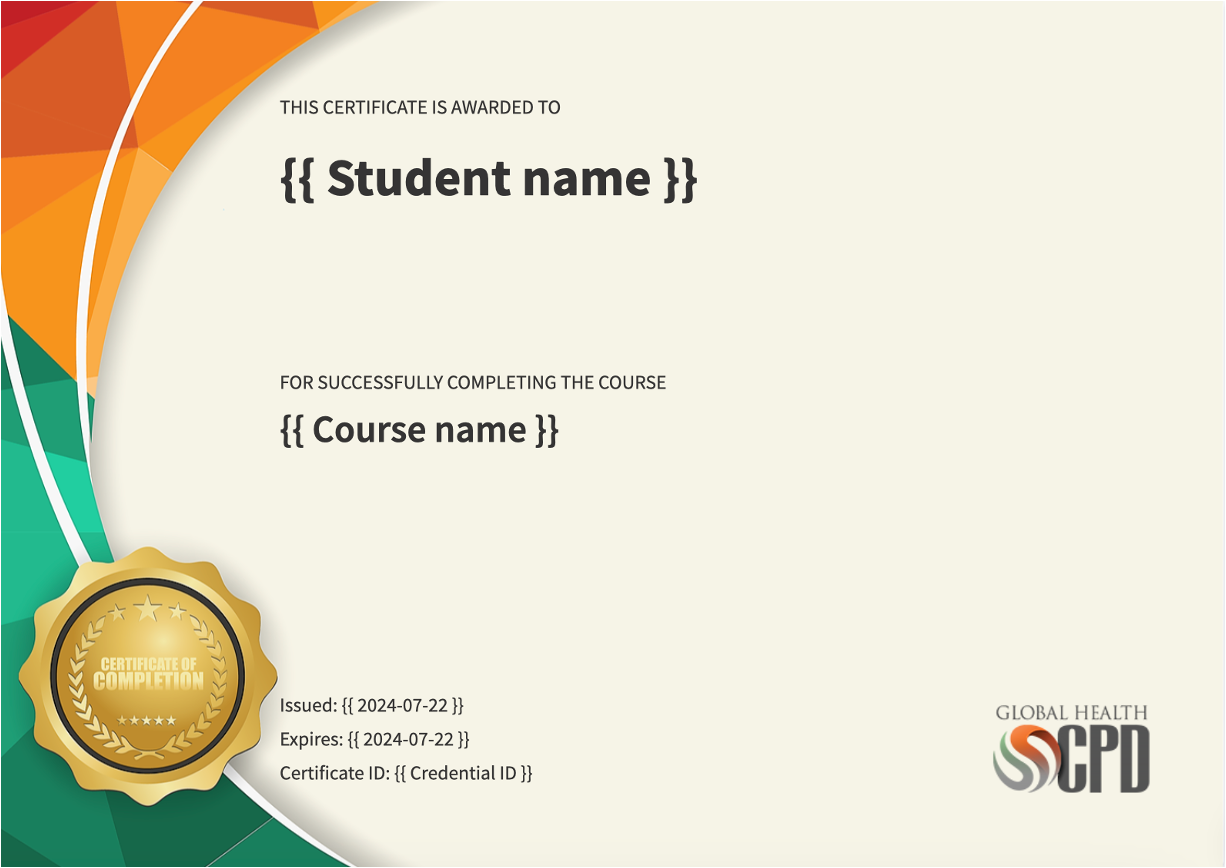
ACADEMY CURRICULUM
Below are descriptions and links to each course housed on the Global Health Continuing Professional Development (GHCPD) educational platform. GHCPD is free and all materials are downloadable.
Antimicrobial Resistance (AMR) Case Studies Series
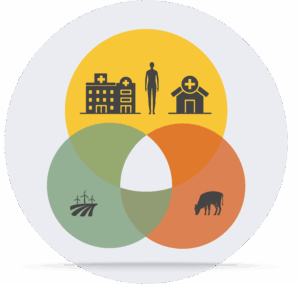
Through 6 real-world case studies, we will examine AMR at the intersection of clinical practice and community behaviour and develop effective strategies to mitigate this crisis. Each case will be presented by Dr. Luchuo Bain, who walks you through the case plus major take home messages and conclusions at the end to summarize the case study and reinforce new knowledge.
We start with our first case: Breaking the Cycle of Antimicrobial Resistance: The Role of Community Practices and Hospital Referrals in Recurrent Urinary Tract Infections in Rural Tanzania.
Version française Cliquez ici
Versão portuguesa Clique aqui
Versión en español Haga clic aquí
Building Capacity for Antimicrobial Resistance Surveillance in Low- and Middle-Income Countries

Version française Cliquez ici
Versão portuguesa Clique aqui
Versión en español Haga clic aquí
AMR Problem-Solving Case Studies Series

In the first case, course director Dr. Carl Boodman, a clinician and microbiologist, provides the scenario of an ICU patient in India clinically deteriorating. Dr. Boodman walks you through the investigation in order to provide proper treatment.
Responses and Analysis
Thank you to all who participated in our first and second AMR problem solving case studies! In case 1, we investigated a hospital ICU patient in India with Acinetobacter baumanii complex ventilator-associated pneumonia (VAP). We summarize the steps we took to identify the organism and guide treatment. Click here to see.
In case 2, we investigated a puzzling case of interesting blood culture results from a patient presenting at the emergency room department with a fever in a West African country. We summarize the steps we took to identify the organism and guide treatment and have highlighted learning points. Click here to see.
The Laboratory in the Prevention and Control of Healthcare-associated Infections: Making healthcare facilities safer
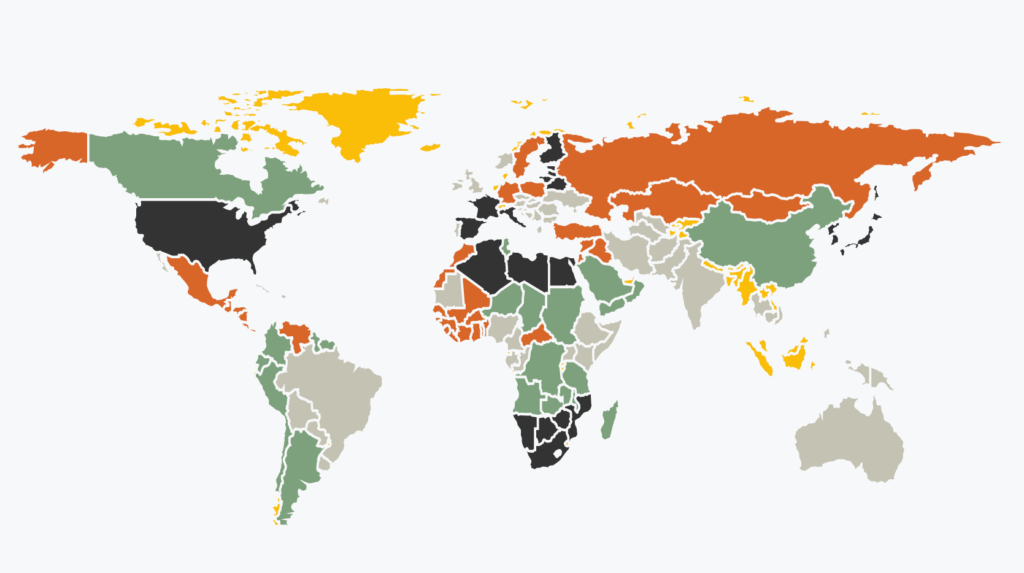
This course includes 3 one-hour modules and examines the alarming spread of antimicrobial resistance (AMR) in healthcare settings. This situation has been exacerbated by the COVID-19 pandemic as more antibiotics are given presumptively and health systems are stretched to capacity. This course addresses the critical role the laboratory plays in the prevention and control of healthcare-associated infections (HAIs).
The course curriculum includes:
I) The Global Crisis of AMR and the Laboratory in the Prevention and Control of Healthcare-associated Infections
II) Detection and Antimicrobial Susceptibility Testing of Healthcare Associated Infections to Guide Patient Management
III) Developing Laboratory Capacity for the Prevention and Control of HAIs in Healthcare Settings
Version française Cliquez ici
Versão portuguesa Clique aqui
Versión en español Haga clic aquí
India version Click here
AMR Case Studies Series

In this series of 8 case studies, faculty and partners demonstrates how our first AMR laboratory course has impacted AMR programs and allowed the AMR community of practice to continue to grow. Highlights include partner experiences as well as new learning opportunities.
The course curriculum includes:
I) AMR Microbiology Laboratory Course Engagement
II) Healthcare-Associated Infections (HAIs): Making healthcare facilities safer
III) Continuing the Fight Against AMR
Microbiology Laboratory Testing to Address AMR

This course includes 3 one-hour modules and covers the role of the microbiology laboratory in the fight against antimicrobial resistance (AMR). The course uses e-learning modalities, such as mini-lectures, animations, practical training videos and discussion forums, to address basic principles and applications of microbiology laboratory techniques for AMR. All courses are taught by internationally known expert faculty.
The course curriculum includes:
I) The Role of the Microbiology Laboratory in the Fight Against AMR
II) The AMR Laboratory: Antibiotic susceptibility and resistance testing for clinical care
III) Role of the Laboratory in the Prevention and Control of AMR in Healthcare Settings
Version française Cliquez ici
Versão portuguesa Clique aqui
Versión en español Haga clic aquí
NEWSLETTERS
Stay informed with the latest developments in the fight against antimicrobial resistance through our AMR Global Health Academy newsletters. Every two months, our newsletters provide updates on new AMR testing, diagnostics, surveillance, educational resources, upcoming training opportunities, research breakthroughs, and policy advancements. We also present AMR problem-solving case studies and feature laboratories and AMR champions battling real-world AMR problems.
REPORTS
AMR Survey for Surveillance Capacity

Antimicrobial Resistance 2024 Educational Series – Report January 2025
Support for this initiative has been provided through an unrestricted educational grant from bioMérieux.


